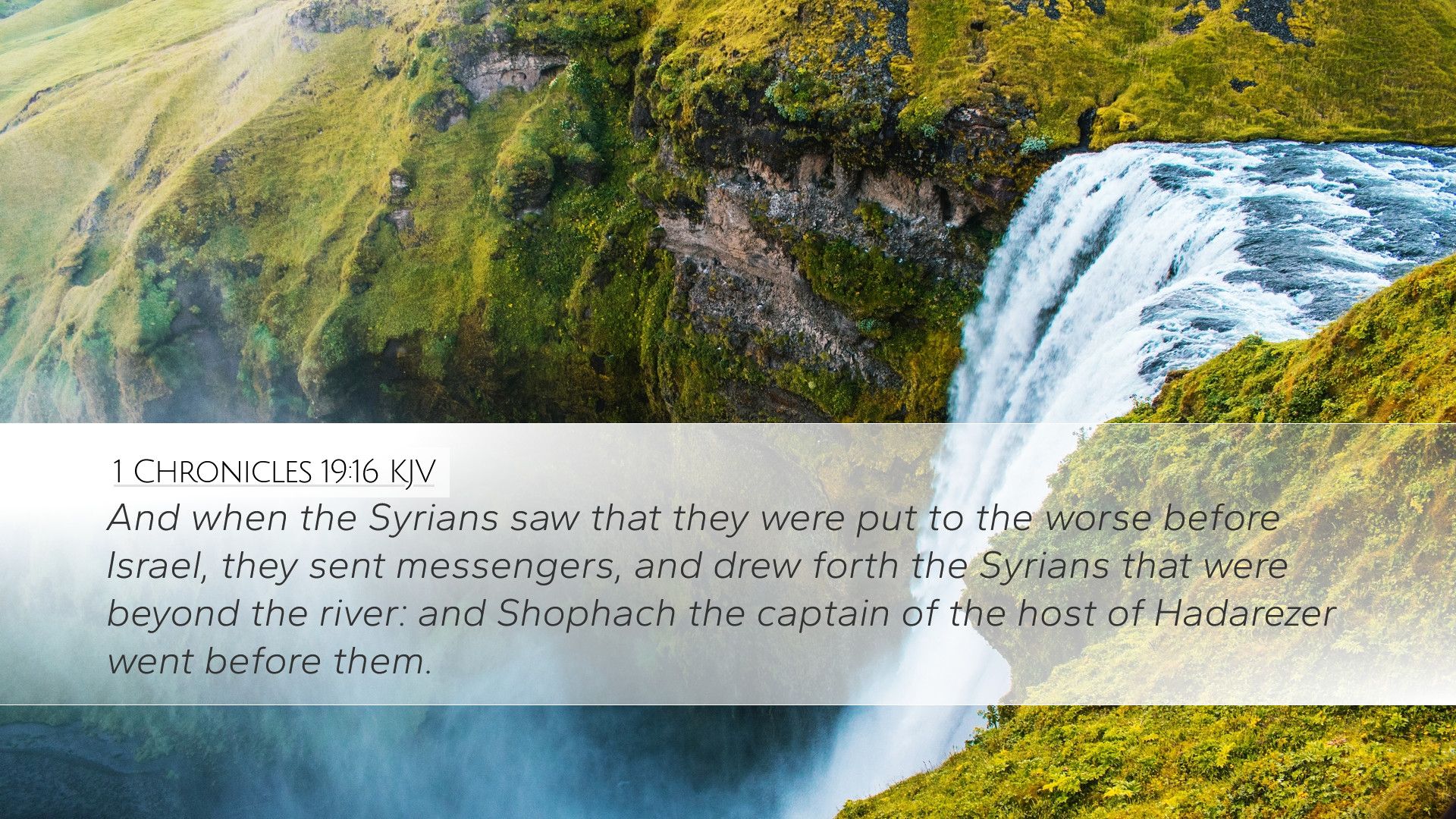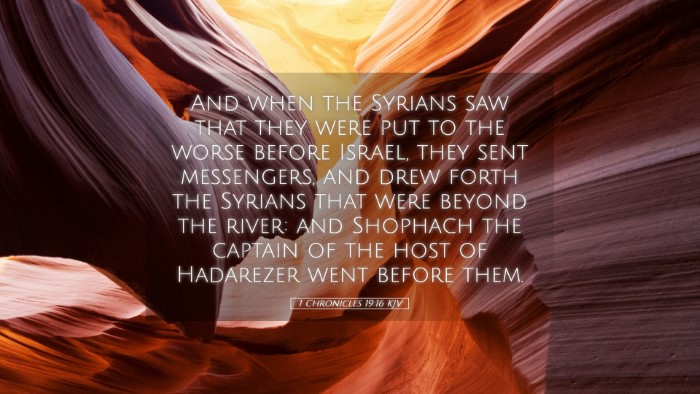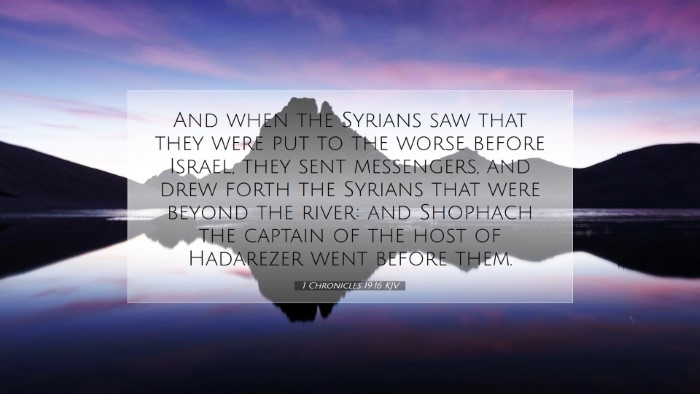Commentary on 1 Chronicles 19:16
Bible Verse: "And when the children of Ammon saw that they had made themselves odious to David, Hanun and the children of Ammon sent a thousand talents of silver to hire them chariots and horsemen out of Mesopotamia, and out of Syria Maachah, and out of Zobah." (1 Chronicles 19:16)
Introduction
The narrative concerning the children of Ammon in 1 Chronicles 19 reveals several theological and historical aspects that are pertinent to understanding the complexities around Israel's military and diplomatic interactions in the ancient Near East. This commentary synthesizes insights from Matthew Henry, Albert Barnes, and Adam Clarke to provide a richer understanding of this verse's implications.
Contextual Overview
The chapter recounts events following the death of the king of the Ammonites, Nahash. David, wishing to show kindness to Hanun, Nahash's son, is met with insult rather than gratitude. The subsequent reaction from the Ammonites, which includes hiring mercenaries, sets the stage for conflict.
Key Themes
- Misdirected Intentions: Hanun's response to David's overture of friendship reflects a deeper political maneuvering typical of ancient diplomacy.
- Divine Sovereignty: Throughout these events, one sees the hand of God guiding the outcomes in favor of David, asserting that despite human folly, divine plans prevail.
- The Nature of Power: The narrative illustrates the precarious nature of political alliances and military power in ancient Israel and its surrounding nations.
Detailed Analysis of 1 Chronicles 19:16
This verse illustrates the response of the Ammonites after recognizing their offensive behavior towards David. The shift from insult to strategic hiring of foreign mercenaries provides a rich ground for exploration.
Interpretation of "Made Themselves Odious"
Matthew Henry points out the gravity of their actions in insulting David. Such a statement indicates a serious breach of expected conduct between nations. Their realization of having made themselves "odious" suggests a collective awareness of their misstep but reflects a too-late understanding of the consequences of their actions.
Political Maneuvering: Hiring Mercenaries
Albert Barnes elaborates on the strategic implications of the Ammonites hiring mercenaries. This move was an effort to bolster their military capabilities in the wake of their insult to Israel. They sought assistance from neighboring regions known for their military prowess, particularly Mesopotamia and Syria. This is emblematic of how lower powers often seek alliances to counterbalance more significant threats.
The Cultural Context
Adam Clarke emphasizes the cultural context of chariotry and cavalry in the ancient military art. Chariots were a symbol of power and mobility in warfare, thus their hiring indicates not merely a fear of David but a serious commitment to assert their sovereignty and confront what they perceived as an aggressive neighbor.
Theological Reflections
This passage invites reflection on the nature of sin and repentance. The Ammonites' actions reflect a common human tendency to act pridefully, only to later seek restoration through might rather than humility. David's leadership model stands in contrast; it emphasizes reliance on God for strength rather than on military might.
Divine Judgment and Mercy
As the narrative unfolds, it speaks to the justice of God in dealing with nations. While David, as the anointed king, faces opposition, the overarching theme emerges that God will defend His people, guiding the outcome of conflicts according to His sovereign will.
Practical Applications
This passage addresses several practical considerations for contemporary readers:
- Understanding Relationships: The significance of relationships and how misunderstanding can lead to conflict emphasizes the need for careful communication and diplomacy in all relationships, be they personal or national.
- Reliance on God: The reliance on military strength by the Ammonites serves as a reminder to Christians regarding the folly of depending on worldly means for security instead of spiritual reliance on God.
- Responses to Insult: How one responds to provocation—like David responding initially with kindness—can be a model for handling conflict graciously rather than retaliating swiftly.
Conclusion
The events surrounding 1 Chronicles 19:16 provide a poignant illustration of the complexities of human relationships, the corrupting nature of pride, and the ultimate sovereignty of God over the affairs of nations. For pastors, students, theologians, and scholars, the reflections drawn from this verse compel an examination of both our responses to conflict and the nature of our dependence on God, emphasizing a life led by faith rather than by the power of men.


